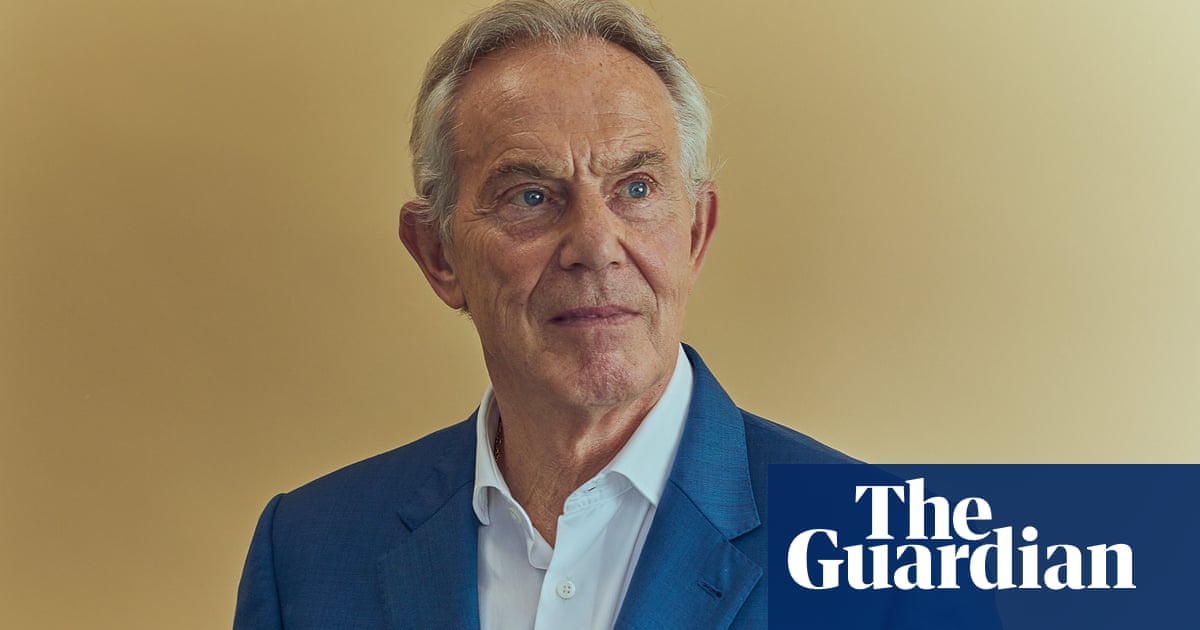In little more than 1,600 words voicinghis scepticism over net zero policies, Tony Blair this week propelled himself and his increasingly powerful institute back into the national debate.
In the past eight years, the former prime minister has built a global empire employing more than 900 people across more than 40 countries,providing policy advice to monarchs, presidents and prime ministers.
But while Blair’s thinktank has brought him influence in his post-Downing Street career, it has also renewed scrutiny on his political views and how they are shaped by his commercial relationships.
The Labour MP James Frith said on Wednesday: “I give congratulations to the marketing department at theTony BlairInstitute (TBI), who have managed to time it brilliantly to get maximum coverage.”
Patrick Galey, the head of fossil fuel investigations at the nongovernmental organisation Global Witness, said: “Blair’s well-documented links to petrostates and oil and gas companies ought to alone be enough to disqualify this man as an independent and reliable arbiter of what’s possible or commonsense in the energy transition.”
AnotherLabourMP, who did not want to be named, said: “The TBI is a bunch of tech bros who don’t care about social justice or fairness.”
The TBI declined to comment on these criticisms, but said the institute was editorially independent.
Blair first set up the institute eight years ago with a plan to take money from high-rolling donors and foreign governments and plough it into policy analysis and philanthropic work. Much of its policy work promotes technology and artificial intelligence as the solution to challenges facing governments around the world.
Those stances have attracted some scepticism from critics, however, given the institute gets much of its money from people connected to the technology industry.
One of the TBI’s biggest sources of cash is the foundation set up by Larry Ellison, the billionaire founder of Oracle and ally of the US president, Donald Trump.Filings in the US showthe foundation gave the TBI more than £52m in 2023 and had promised another $218m (£163m).
Like many technology companies, Oracle is investing heavily in AI products, including tools for improving healthcare. Ellison has also spokenin favour of using AI for the mass surveillance of civilian populations.
Blair’s policy proposals dovetail with Oracle’s corporate interests in other areas too. In his foreword tothe net zero report, he writes: “The new generation of small modular reactors offers hope for the renaissance of nuclear power, but it needs integrating into nations’ energy policy.”
Ellisonannounced last yearthat Oracle was designing a new datacentre to be powered by three small modular reactors.
The TBI has also worked with fossil fuel companies and petrostates, including signing amultimillion pound dealto advise the Saudi government. Last year, the institute advised Azerbaijan, the oil-rich state which controversiallyhosted the Cop29 climate conference.
The TBI says its policies are often focused on helping bolster public services in developing countries. Benedict Macon-Cooney, the institute’s chief policy strategist, told the Guardian in 2023: “There is no conflict of interest and donations are ringfenced.”
Longtime Blair allies meanwhile are divided on whether the former prime minister has always harboured doubts about climate policies.
Sign up toDown to Earth
The planet's most important stories. Get all the week's environment news - the good, the bad and the essential
after newsletter promotion
Nicholas Stern, whom Blair commissioned in 2006 to write an influential report on the economics of climate change, said: “I think Tony Blair has got a very good track record on climate change, which makes me slightly puzzled by this piece of work. I don’t think this is the Tony Blair Institute’s finest hour.”
Another former adviser and colleague however said: “Blair always had to be dragged along when it came to climate change. He was generally resistant to green arguments.”
Meanwhile the former prime minister has also been cultivating relationships with Labour MPs, holding a series of roundtable discussions with small groups of MPs over the last year.
One MP who had attended one meeting said: “His message was that technology companies have deep pockets and so are going to be able to drive change faster than governments can. That message was pretty unhelpful politically and the exact opposite of what the Labour government is trying to tell people.”
Others in the Labour party, however, believe he is providing a useful service in making Labour think again about some of its more radical climate policies.
“Blair was making a point about the purpose of our energy policy,” said one.
“He needs to work on his timing but the point is right – energy security and reducing bills are the goals of UK energy policy because they benefit working people. Everything else is subsidiary to that.”
